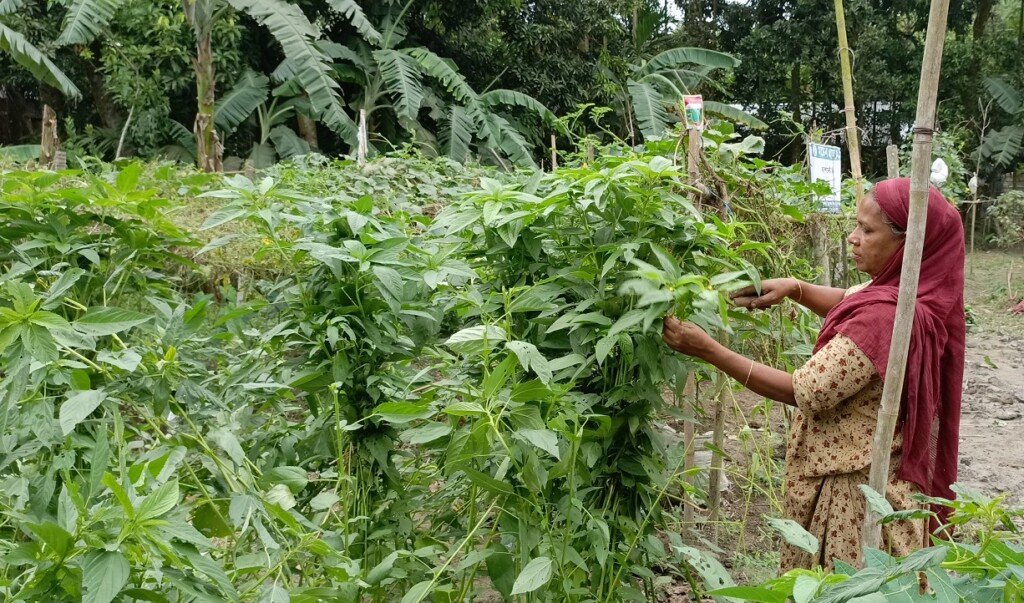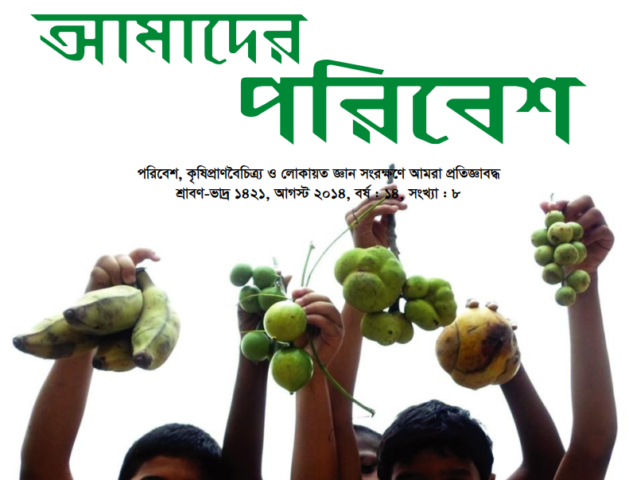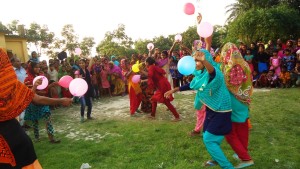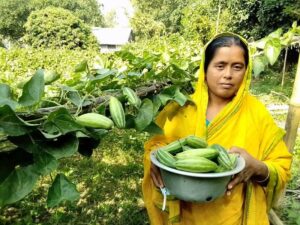Happy Roy, from Netrakona
Agriculture is the means of livelihood for the people in the rural areas. All thoughts and dreams of a farmer center round the agriculture. A farmer gets busy throughout his life thinking and performing all agriculture works which include crop production, land preparation, seed collection and conservation, fertilizer application, crop sale etc. All efforts of farmers are to ensure the nutrition and food security of their family, earn additional cash and above all get them involved with income-generating activities.
Fatema Akhtar of Paharpur village of Baniajan union is a farmer. She has been involved in farming since she came to her husband’s house. After doing all her household works she gets herself involved in farming vegetable in her 15 decimal homestead lands. She has been cultivating vegetable for the last 15 years.
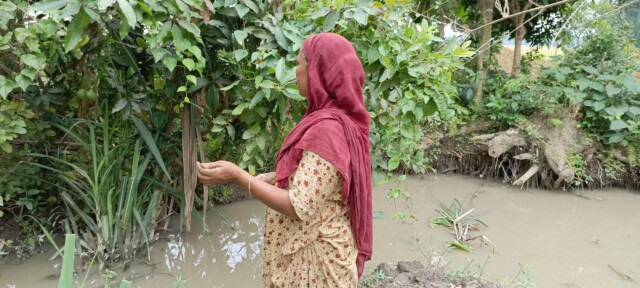
Initially she collected seeds from neighboring farmers and relative house for the vegetable cultivation and cultivate vegetables. Gradually she farms different types of vegetable and collect as well as conserve the seeds of those vegetable leading her not spend time for collecting seeds from others. Today Rahima Akhter cultivates 21 types of vegetable in her homestead lands.
However, this year the people of Bangladesh experienced heat wave during the summer. There has been no rain during the month of April. Farmers suffer from the drought situation as their crops in their land are burn and died due to lack of water. The soil becomes very dry and lacks sap which creates negative impact of crop cultivation. Farmers could not yield vegetables and other crops due to this dry weather and lack of rain. But even during this disaster the heat did not affect Fatima Akhtar’s vegetable land due to her innovative way of keeping her vegetable fresh. Her innovation paves her way to water her vegetable using the water she preserves and harvests from rain and pond.
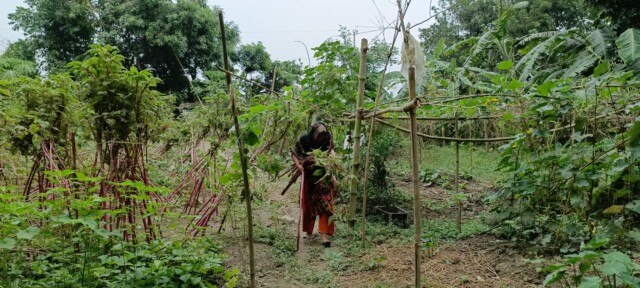
What initiative did she take to keep her vegetable fresh and alive even during the scorching heat and heat wave? Fatema Akhter said, ‘It is time consuming and laborious to irrigate vegetables by collecting water from the ponds and other open water bodies. Considering that I adopt an alternative way to provide irrigation of my vegetable. I dig a big hole on one side of vegetable plot and fill the hole with water collecting from the pond and harvesting rain water.’ She went on saying, ‘The hole benefits me in to two ways: I can elevate the vegetable plot with the soil of the hole and on the other hand, I can preserve water in the hole to irrigate my vegetable land. I collect water from the hole to irrigate my vegetable every day during the heat wave leading me to keep my crops fresh and alive.’
It has been seen that when other farmers of the village are unable to harvest vegetables from their land and have to buy vegetable from the market for consumption, Fatima Akhter can easily meet the vegetable demand of her family and even can sell the surplus vegetable in the market ensuring her additional cash. The villagers and farmers are also seen to buy vegetable from Fatema Akhter because her vegetable is safe food as she does not use any extra inputs (Chemical fertilizers and pesticides) while cultivating those vegetable. Thus, her vegetables are nutritious and safe. Fatima Akhtar and her daughter nourish and take care of the vegetable fields and collect the matured vegetable from the plot on regular basis and her husband takes the vegetable to market for sale.
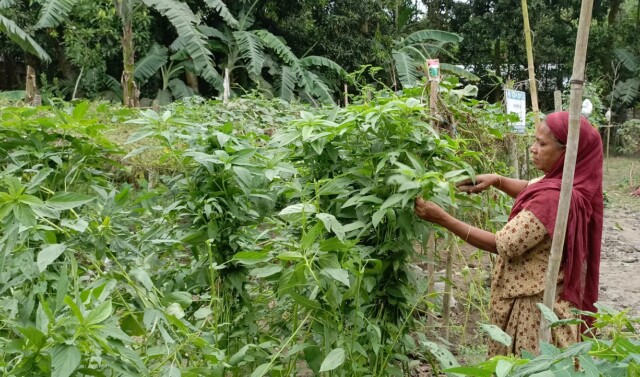
The innovative initiative of Fatema Akhter has enabled her to protect her crop form climate induced disaster drought. She has been able to adapt to the changed situation using her knowledge and wits. She also encourages other men and women farmers to use their knowledge and innovation to adapt to the changed situation occurred due to climate change. This type of local adaptation practices of farmers contributes in countering the impact of climate change and ensures survivability of our agriculture.
Translated by Silvanus Lamin

